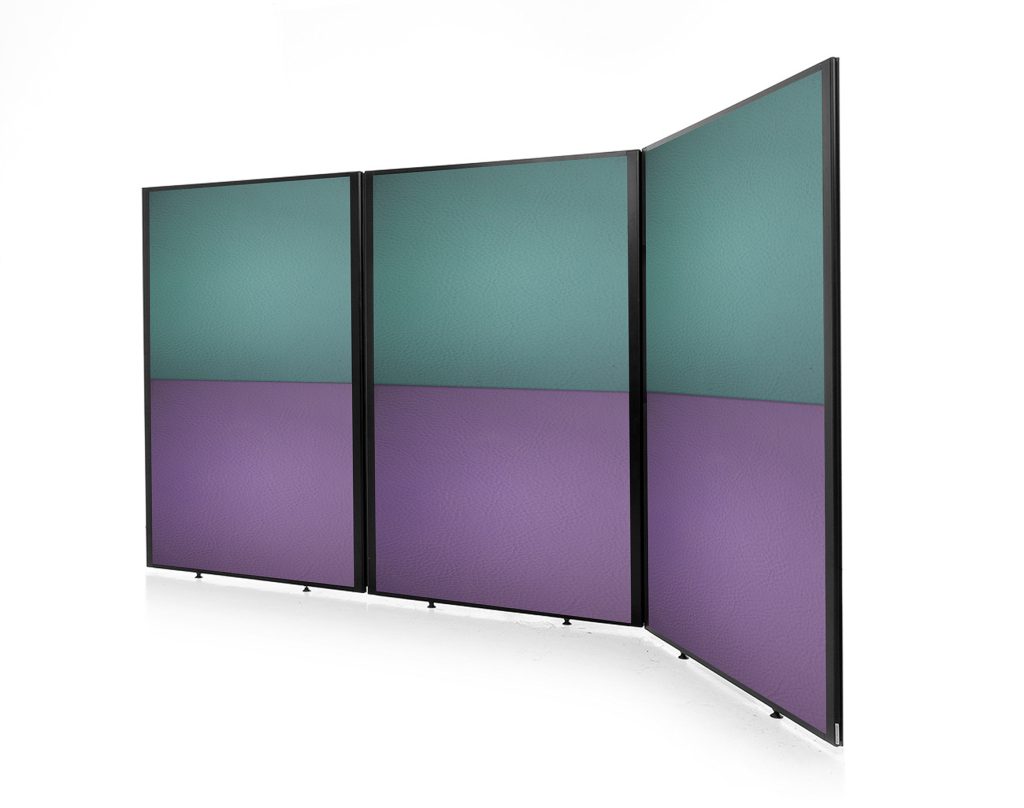For modern interior design, the focus falls on transforming spaces into aesthetically pleasing open offices which encourage collaboration and teamwork. The traditional cubicle style has evolved drastically in recent history into hubs designed towards bundling teams together to work towards the collective goal. But while these environments are pleasing on the eye, the practicality of them is often limited as they often do more to hinder teamwork than they do to encourage it. Wherever we are, we use all of our senses to absorb our surroundings and something we often neglect is sound. Whether we are sat alone in a room or in a bustling train, sound can have a seriously detrimental impact on us.
This is especially the case in open office environments where phones are ringing constantly throughout the day and the inescapable earworm of your neighbour chatting away persists. For many workers, the biggest disturbance at work is overhearing the conversations of others and no matter how much we may try to ignore them, we always passively concentrate on what is being said, regardless of how mundane it may be. Studies have shown that disturbances such as these can occupy up to two thirds of the attention that we can muster, leaving very little room to concentrate on the work at hand.
Constant disturbances can be frustrating at the time, but when left to linger, they can foster a range of mental and health implications. When deadlines are approaching, having to listen to your neighbour discussing their plans for the weekend can aggravate stress levels. If this is the case for one member of staff, then you can be pretty sure that it is common amongst the majority of the workforce as well. In the end, what began as frustration, can lead to increased absenteeism and bouts of sickness as noise levels continue to spiral.
The answer fortunately, is not to condemn your office to complete silence. While tricky, the key component of office design is to create an acceptable level of ambient noise. This allows conversations to continue, but adds a degree of control to distort sound and removes that impossible allure of listening in to what others have to say. Eradicating conversations altogether merely creates an oppressive environment, which defeats the whole point of the open office in the first place. For example, blood pulses will only continue to boil when a phone call does have to be made and the whole office has the pleasure of listening in.
Employing an interior designer to take these concerns into consideration can be an expensive option, but there is still plenty you can do, especially if you have a smaller office to contend with. Neat tricks such as blindfolding yourself and picking out areas where noise peaks can allow you to identify places where acoustic control is required. An important factor to recognise is that sound bounces off of hard surfaces, so unfortunately hardwood floors are incredibly impractical for your offices. This also means that adding soft surfaces such as carpets as well as padding on the walls and ceiling, are incredibly effective at soaking up ambient office noise.
An alternative to those is to invest in acoustic partition screens which combine acoustic absorbent foam with a stylish design to help confine conversations to each desk while contributing to the overall design of the office. At Rap Industries, we manufacture the Delta Acoustic Screen which incorporate this vibrant design and each screen can be tailor made to adapt to each office environment.
The benefits of managing to keep volume levels under control can be subtle, but you are certainly more likely to notice the negatives when the noise becomes unbearable. Failing to keep a lid on things can lead to it spiralling out of control as employees clamber to speak over each other, so it is pivotal to keep a track of levels, especially as your business continues to grow. If you would like to learn more about how the Delta Acoustic Screens can help to contain ambient office noise in your workplace, then please give our team of advisors a call on 01733 394941 or send them an e-mail to sales@rapind.com.
